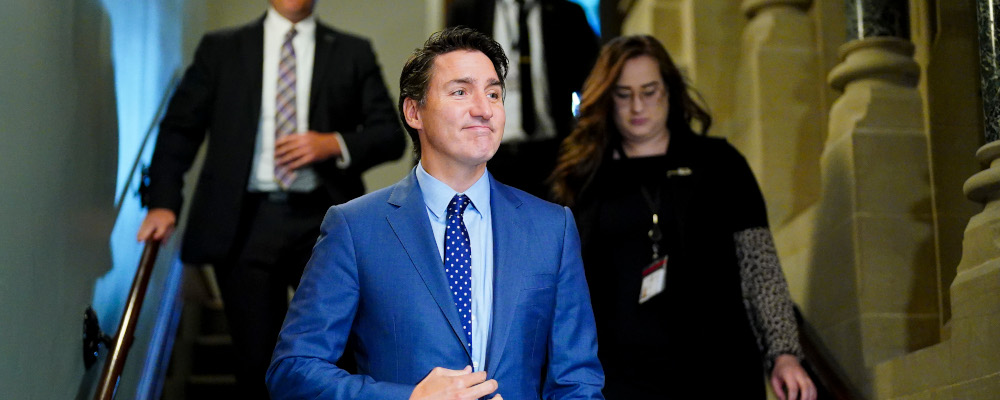In the latest Hub book review, Patrick Luciani reviews Tyranny of the Minority: Why American Democracy Reached the Breaking Point by Steven Levitsky and Daniel Ziblatt (Crown Publishing Group, 2023) and argues that while the threat of the tyranny of the minority is alive and well in both the United States and Canada, it manifests itself in different ways due to our unique political and social systems.
Democracies have always tried to balance the interests of the majority while protecting the rights of minorities and preventing authoritarian rule. In the U.S., those protections are built into its 18th-century Constitution. In Canada, the threats to majority rule aren’t structural but silent and just as pernicious.
In their latest book, Tyranny of the Minority: Why American Democracy Reached the Breaking Point, Steven Levitsky and Daniel Ziblatt, who teach politics at Harvard, argue that built-in flaws in the American Constitution—a system of checks and balances designed to keep authoritarian rulers at bay—are now encouraging the very thing the Constitution was meant to prevent.
In the past, once a party lost power, the incentive was to change course to fight and win the next election. That incentive has been diminished if power can be gained by appealing to a minority of voters. Case in point: although both parties have almost split the 100 Senate seats, Democrats represent nearly 42 million more Americans. And yet both parties are practically even in both houses of Congress. And given how populations are distributed, the 2024 federal election could again be decided by an anti-democratic Electoral College. The two-senators-per-state rule was never intended as geographic equity, let alone equality, but to prevent mob rule. The filibuster is America’s Achilles’ heel that requires 60 votes to pass most bills in the Senate, which stifles majority rule.
And Americans are feeling the frustration. According to the Pew Research Center, only 25 percent of Americans had lost faith in their democracy in 1995. By 2021, only 41 percent said they were satisfied with their democracy.
To save democracy from collapsing, Letvitsky and Ziblatt recommend drastic changes to save the country from further internal divisions and restore the democratic principle of majority rule. The authors recommend a string of solutions, from amending voter rights for all citizens, establishing term limits for Supreme Court judges, and abolishing the Electoral College. But given the high bar to amend the Constitution, few in the party, or in states where Republicans rule, would abandon the status quo voluntarily.
Where the threats to majority rule in the U.S. are structural, the threats in Canada are subtler. We have a system of representation in the House of Commons that rewards more voter weight to Eastern Canada and Quebec than in Ontario and the West. The Senate balances this with better representation nationwide, but that’s not where the power is. And though Canada’s nine Supreme Court justices are dispersed by region throughout the country with a mandatory retirement age of 75, all appointments come from the PMO without legislative approval.
But the real problem in Canada comes from an unelected and geographically and socially homogenous group, known as the Laurentian Elite, who call the shots on how the country is governed. In their 2013 best-selling book, The Big Shift, Darrell Bricker and John Ibbitson argued that this power base was quickly losing power as Canada’s growing immigrant base played a bigger political role while centres of power were moving West.

The Laurentian consensus did not just emanate from political Liberal power circles; they also included social and intellectual conservatives who swam in the same cultural waters. Bricker and Ibbitson wrote their book when Stephen Harper was in power and can be forgiven for appearing prescient. Now that Justin Trudeau has been in office since 2015, we’ve reverted to a power base that looks much like the Family Compact of old, pushing a progressive social agenda (woke, if you like) from the commanding administrative heights of law, education, media, corporations, and government.
This urban, high-income, educated elite class embedded in a small geographic centre in Canada dictates the country’s social and political agenda. They see the world from the same political perspective when it comes to issues on the environment, social progress, racism, sexual politics, and obligations for the nation’s historical sins. It’s hardly a group that represents average Canadian priorities. A U.S. study of urban wealthy elites shows how far removed they are from the major concerns of average Americans. The situation is similar in Canada.
The difference in the threat to majority rule between the U.S. and Canada is this: the tyranny of the minority in the U.S. is in the open. In Canada, this small ruling class pushes a progressive agenda no one voted for.




